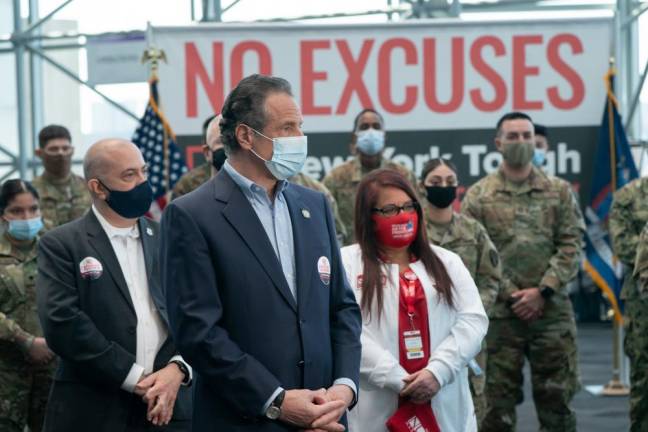Passing on Passports
A debate over whether people should be required to carry proof of vaccination

Red, Blue, left, right, and center, most Americans have one thing in common: They do not like to be told what to do, especially when the person or entity doing the telling is the government.
The pandemic has brought this into full view, first with the fights over whether people can be compelled to wear masks or be vaccinated and now the question of who should or shouldn’t be required to carry a vaccine “passport.”
Henning Jacobson would definitely have been a “No” vote. On March 2, 1902, nearly one year into a smallpox epidemic, when Boston Health Commissioner E. Edwin Spencer knocked on Henning’s door, armed with an 1855 Massachusetts law permitting local officials to order all adults to be vaccinated, Jacobson refused. After trying a few more times, Spencer did what the law allowed: He fined Jacobson $5 ($152.92 today).
This time, Jacobson said a louder “No.” Along with a cadre of early anti-vaxxers and their lawyers, he traveled up the court system until February 20, 1905, when The Supreme Court handed down Jacobson v. Massachusetts, a 7-2 decision that public health measures for the common good could supersede individual rights. There were exceptions. As Jonathan Berman, an assistant professor of basic sciences at the New York Institute of Technology College of Osteopathic Medicine (NYITCOM) at Arkansas State [Jonesboro] campus notes, the states could not “hold you down and force you to get vaccinated,” and a physical condition that made vaccination risky or a legitimate religious objection might get you an exemption.
A thorough Google search turns up no evidence that Jacobson ever gave in but if he had, the small, round puckered vaccination scar would have been his “passport.” More recent vaccinations leave no such mark, one reason why we are currently arguing about whether or how you must be required to prove that you’re had your COVID-19 shots.
Political Uproar
In February, Israel initiated a “Green Badge” granting those vaccinated access to specific public sites. The European Union, China and Britain appear ready to follow. The Biden administration says there will be no such federal requirement to prove you’ve been vaccinated and no federal data base storing your medical status, but that has not quieted the political uproar which pollster Frank Luntz characterizes as liberals worried that a passport would create a privilege gap between those with access to vaccines and conservatives fearing it limits their freedom.
Actually, it’s not quite that neat. When you travel or drive around you carry a real passport or a driver’s license which anyone with access to those particular databases can track, so for many people the “passport privacy issue” is pretty much a non-starter. However, Republican Governors in Florida and Texas have banned “passports,” and Minnesota’s Democratic Governor Tim Walz says, “Our passport is getting the shot.” Gov. Andrew Cuomo’s approach is two-fold. The New York Excelsior Pass gives mobile phone users a “passport” code when they upload a recent COVID-19 negative test result or vaccine status, but for those without access to a cellphone or computer, a recent negative test or the CDC vaccination card you get when you get the shots will do.
In the end, the deciding factor on passports may be the virus itself. Contrary to Donald Trump’s prediction, COVID-19 won’t just disappear. But chased by a vaccination rate that looks to top every county in the world, it may eventually fade into the background with a reminder to get this year’s booster shot.
Keep your fingers crossed.
The New York Excelsior Pass gives mobile phone users a “passport” code when they upload a recent COVID-19 negative test result or vaccine status, but for those without access to a cellphone or computer, a recent negative test or the CDC vaccination card will do.